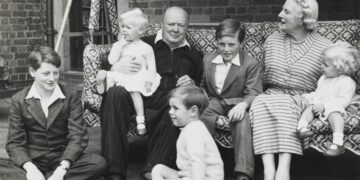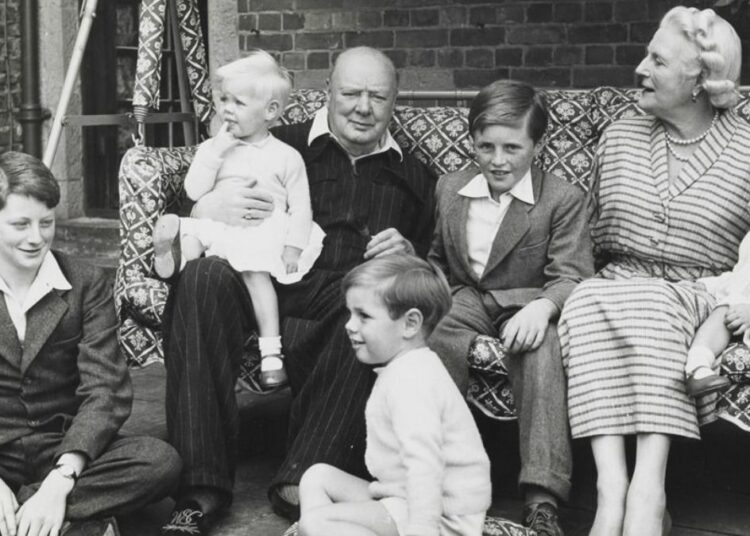Last updated on November 23rd, 2022 at 02:17 pm
Lord Randolph Churchill, third son of the 7th Duke of Marlborough, rose to prominence in the British government as leader of the House of Commons and Chancellor of the Exchequer. But his enduring fame is thanks to his son Sir Winston Churchill, Britain’s indispensable Prime Minister whose dogged courage sustained his beleaguered nation during the dark days of World War II. This was long after the passing of Lord Randolph, whose accomplishments Winston had memorialized in a laudatory two-volume biography.
It was an undeserved accolade by a son whose father never seemed to have time to be a father. Winston would later mention to his own son, “We have this evening had a longer period of continuous conversation together than the total which I ever had with my father in the whole course of his life.” Even the few conversations Randolph did manage to have with Winston were punctuated with expressions of the father’s disappointment and disapproval.
No wonder Winston’s daughter Sarah was surprised at her father’s response when, at a family dinner after the war, she pointed to an empty seat at the table and asked, “If you had the power to put someone in that chair to join us now, whom would you choose?” Expecting him to name a famous figure like Caesar, Napoleon, or his ancestor the Duke of Marlborough, Sarah instead heard her father respond, “Oh, my father, of course.”
If Churchill’s life illustrates the intrinsic human yearning for the attention and approbation of one’s father, it also shows that a person need not have a good father to be one. “He was determined to do things differently with his own children,” notes the International Churchill Society, and “vowed that, unlike his father, he would spend time with them and was an affectionate and devoted parent.” Quite an accomplishment for the man who was, as Larry Arnn has emphasized, the savior of free government in our day.
Churchill understood about fatherhood what President Ronald Reagan would express, that it is “all about the things that matter most— about love and new life, about trust and responsibility, about faithfulness to a family,” and about “fostering children’s physical and emotional growth, encouraging success, [and] easing failure” in “a special and irreplaceable way.” Dr. David Popenoe similarly calls the contribution of fathers “unique and irreplaceable,” bringing “positive benefits to their children that no other person is as likely to bring.” One need only consult the Family Engagement section of the HHS Early Childhood Learning and Knowledge Center to begin to appreciate the scope of those benefits.
But what happens to society when dads are not there to make their contribution? A quarter of a century ago, Dr. Wade Horn referred to “the collapse of fatherhood” as our “greatest social tragedy” and “the most disturbing and consequential social trend of our time.” And things have only gone downhill since. Cassie Carstens calls fatherlessness “the most fundamental flaw in society,” while the National Center for Fathering insists that “if it were classified as a disease, fatherlessness would be an epidemic worthy of attention as a national emergency.”
And the consequences are catastrophic. Summarizing a study by sociologists from three prestigious universities, Christopher Brown explains that father absence puts children at “increased risk of living in poverty, performing poorly in school, emotional and behavioral problems, becoming violent, getting pregnant (or getting someone pregnant) as a teen, winding up in prison or jail, and committing suicide.”
Never has the world needed faithful fathers more than now. As Father’s Day is celebrated around the globe, it points us, in the words of President Reagan, “to those men—our natural fathers, adoptive fathers and foster fathers—who deserve our deepest respect and devotion.” And “as we recall the ancient and loving command to honor our fathers, [may] we resolve to do so by becoming ourselves parents and citizens who are worthy of honor.”




















Discussion about this post